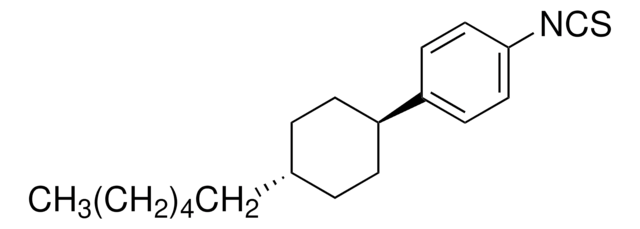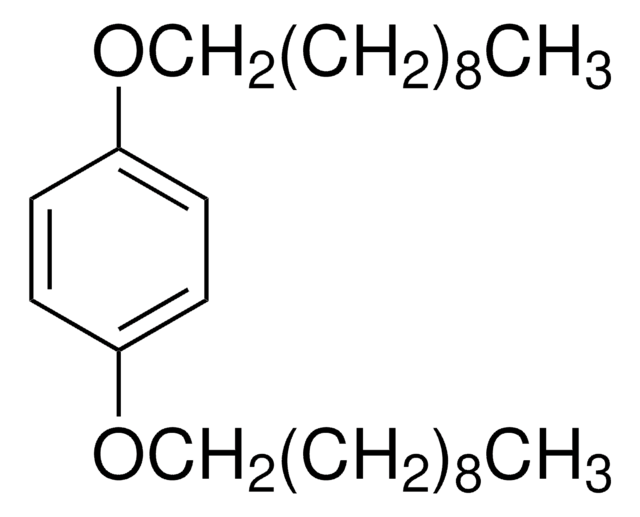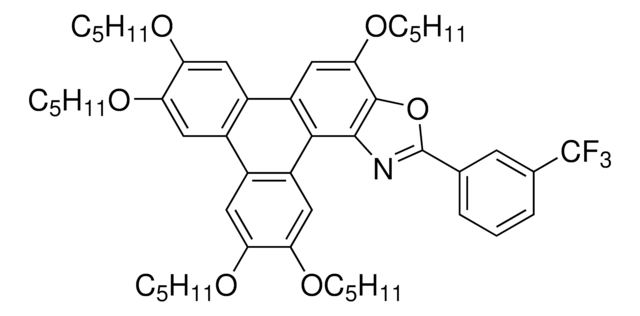922277
TpOx-B15C5
Synonyme(s) :
TpOx-Crown Ether Series
About This Item
Produits recommandés
Description
Polymorph crystalline phase: Solid, Discotic Liquid Crystal, Isotropic
Niveau de qualité
Solubilité
soluble (DCM,THF > 1 mg /mL, MeCN, DMSO < 1 mg /mL)
λmax
270 nm in ethyl acetate
εmax
86,000 M-1cm-1 in ethyl acetate
Fluorescence
λem 457 nm, quantum yield 0.43 (pSS(nm) = 187; Fluorescence lifetime (ns) = 4.23)
Température de stockage
2-8°C
Catégories apparentées
Description générale
Application
- Metal cation sensing
- Fluorescent dye staining
- Organic semiconductor for organic electronic and photonic applications
- Multi-photon microscopy
Code de la classe de stockage
11 - Combustible Solids
Classe de danger pour l'eau (WGK)
WGK 3
Point d'éclair (°F)
Not applicable
Point d'éclair (°C)
Not applicable
Faites votre choix parmi les versions les plus récentes :
Certificats d'analyse (COA)
Désolés, nous n'avons pas de COA pour ce produit disponible en ligne pour le moment.
Si vous avez besoin d'assistance, veuillez contacter Service Clients
Déjà en possession de ce produit ?
Retrouvez la documentation relative aux produits que vous avez récemment achetés dans la Bibliothèque de documents.
Articles
Here we introduce the Triphenoxazoles, a new class of organic electron donor-acceptor materials that can both be manipulated to change the electronic properties of the donor and acceptor with the consequent modulation of their HOMO/LUMO and properties, such as Stokes shift and (photo)conductivity, whilst at the same time displaying liquid crystallinity and functional groups for further chemical modification.
Photovoltaic materials convert light into energy such as electricity. In contrast, display technology converts energy into visible light. A variety of display technologies and devices are reviewed.
Notre équipe de scientifiques dispose d'une expérience dans tous les secteurs de la recherche, notamment en sciences de la vie, science des matériaux, synthèse chimique, chromatographie, analyse et dans de nombreux autres domaines..
Contacter notre Service technique



![6-[4-(4-Cyanophenyl)phenoxy]hexyl methacrylate 96%](/deepweb/assets/sigmaaldrich/product/structures/225/164/3dc33b5e-baf4-44f2-9e81-770c92250f7b/640/3dc33b5e-baf4-44f2-9e81-770c92250f7b.png)




